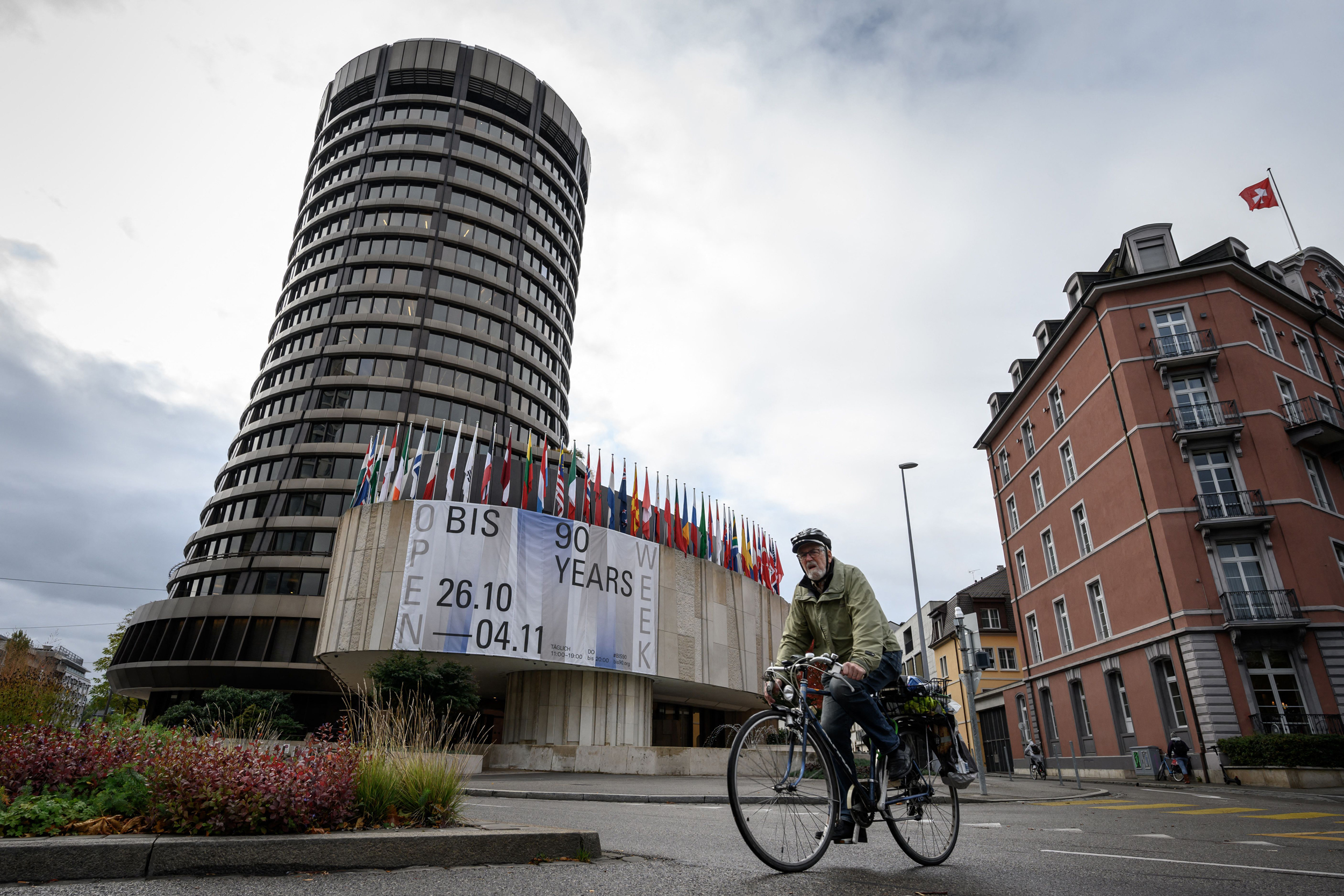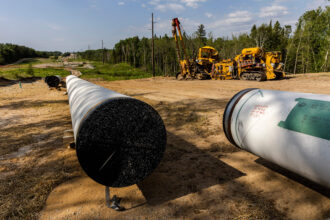Experts and advocates reacted with concern and disappointment after the world’s top financial regulators agreed on Monday to shift the climate focus of the Basel Committee on Banking Supervision toward voluntary disclosures and a narrower focus on extreme weather—a move seen as a step back from earlier momentum toward mandatory global standards.
The Group of Central Bank Governors and Heads of Supervision (GHOS), which oversees the Basel Committee, endorsed the changes at its regular meeting in Basel, Switzerland.
A body of banking supervisors from 28 jurisdictions, including the United States, Europe and China, the Basel Committee sets international regulatory standards for the financial sector. The body does not have a legal enforcement authority but its decisions shape the global banking and financial systems.
In an official press release, the group reaffirmed its commitment to finalizing capital rules laid out in Basel III but said climate-related risk disclosures would now be “voluntary” and that future efforts would prioritize “analysis” of financial risks tied to extreme weather events.
Basel III rules are designed to ensure banks have set aside enough money to handle losses and withstand financial storms. These rules help protect customers’ deposits and keep the wider economy safe from financial crises.
Experts say the language marks a retreat from efforts to create robust, binding climate risk rules for global banks, and reflects pressure from U.S. regulators under the Trump administration to weaken the Basel Committee’s Task Force on Climate-Related Financial Risks, the body that had driven forward more ambitious proposals in recent years.
“The Basel Committee is stepping back from ambitious climate regulations and shifting toward a slower, voluntary, research-focused approach,” said Anne Perrault, senior climate finance policy counsel at Public Citizen.
She said that omitting any mention of the task force in the official statement clearly signaled a retreat from earlier momentum toward mandated standards. “Regulators won’t be acting in line with the data if they’re avoiding an analysis of transition risk. It’s fair to wonder what this avoidance of transition risk implies for [Federal Reserve] independence.”
The Task Force was established in 2020 to assess how climate change could destabilize the global financial system and required banks and regulators to factor in transition risk, carbon asset exposure and other forward-looking scenarios.
But its absence from Monday’s statement—and the pivot to non-binding action—has been seen by analysts and experts as confirmation that the task force’s influence has been curtailed.
The GHOS, made up of top central bank governors and heads of financial supervisory authorities, is its highest oversight group and its signals often determine the committee’s direction, experts said.
The shift announced Monday comes after months of quiet lobbying by U.S. financial regulators—including the Fed, the Office of the Comptroller of the Currency, and the Federal Deposit Insurance Corporation—to move away from broad, mandatory climate risk disclosures.
In January, the Fed formally withdrew from the Network for Greening the Financial System , another international climate finance consortium, citing legal and operational overreach.
Representatives for the Federal Reserve did not immediately respond to a request for comment Monday.
Experts viewed that move, and now the weakening of the Basel Committee’s climate mandate, as part of a broader pattern of the Trump administration.
“This is clearly a move toward what we’re seeing in the U.S. on climate,” said Perrault. “It could be a big step back from dealing with a global financial stability threat,” she said and noted, “If we’re not working together to solve this global commons issue, it undermines the ability to manage systemic risk.”
Advocates say the change leaves a leadership vacuum at the global level—one that European regulators and China may now fill.
“Undermining global coordination sends a reckless signal to markets and leaves the U.S. isolated as the rest of the world moves forward,” said Ben Cushing, sustainable finance campaign director at the Sierra Club. “Watered-down standards won’t protect our financial system from the growing fallout of climate change.”
“We’re reducing transparency at a time when we need more of it.”
— Danielle Fugere, As You Sow president
The risk, Cushing said, is that focusing only on extreme weather sidesteps transition-related threats like stranded fossil fuel assets, regulatory upheavals and changing consumer preferences, all of which could carry major implications for asset prices and credit markets.
While the new voluntary framework gives jurisdictions more flexibility, observers believe it also lowers the bar for transparency, threatening to fragment climate finance regulations and deepen global risk exposure.
Danielle Fugere, president of the shareholder advocacy group As You Sow, said the rollback strikes at the heart of global risk transparency.
“The U.S. pushback on the standards—voluntary or mandatory—amounts to an attempt to reduce knowledge and understanding of risk,” Fugere said. “We’re reducing transparency at a time when we need more of it.”
She warned that if the U.S. continues to reject global climate risk frameworks, its financial system may become less relevant to investors and more exposed to shocks.
“If we’re failing to address climate risk, those assets are then more risky,” she said. “The rest of the world shouldn’t be held back.”
Despite the setback, experts said the work of building climate resilience in finance will likely continue, just not under U.S. leadership.
As the climate crisis accelerates and more insurers, banks, and regulators confront losses tied to extreme weather and energy transition, the absence of coordinated global standards may prove costly.
About This Story
Perhaps you noticed: This story, like all the news we publish, is free to read. That’s because Inside Climate News is a 501c3 nonprofit organization. We do not charge a subscription fee, lock our news behind a paywall, or clutter our website with ads. We make our news on climate and the environment freely available to you and anyone who wants it.
That’s not all. We also share our news for free with scores of other media organizations around the country. Many of them can’t afford to do environmental journalism of their own. We’ve built bureaus from coast to coast to report local stories, collaborate with local newsrooms and co-publish articles so that this vital work is shared as widely as possible.
Two of us launched ICN in 2007. Six years later we earned a Pulitzer Prize for National Reporting, and now we run the oldest and largest dedicated climate newsroom in the nation. We tell the story in all its complexity. We hold polluters accountable. We expose environmental injustice. We debunk misinformation. We scrutinize solutions and inspire action.
Donations from readers like you fund every aspect of what we do. If you don’t already, will you support our ongoing work, our reporting on the biggest crisis facing our planet, and help us reach even more readers in more places?
Please take a moment to make a tax-deductible donation. Every one of them makes a difference.
Thank you,













